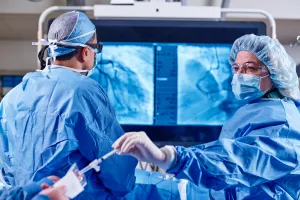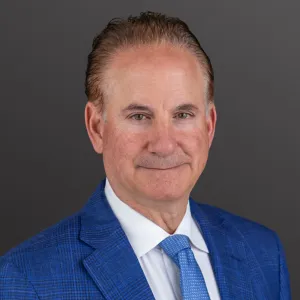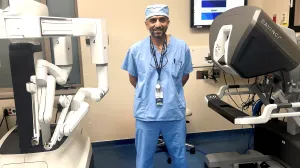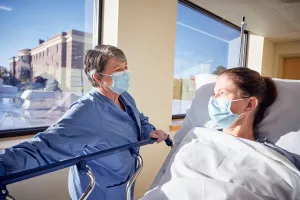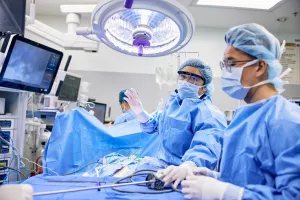When we’re part of a health system that’s nearly as old as the United States itself, our Department of Surgery is bound to make some history along the way. Like in 1964, when we performed the world’s first small bowel transplant. Or in the 1950s, when Tufts Medical Center researchers Robert Schwartz and William Dameshek discovered the chemical 6-mercaptopurine and its immunosuppressive effects—work that coined the term immunosuppression and paved the way for organ transplantation as we know it.
We’re proud of that legacy, but we’re not here to rest on it. With the highest case mix index in Boston, we see some of the most complex surgical cases anywhere. That pushes us to think bigger, operate smarter and deliver better outcomes every day.
Our teams are leading rapidly growing programs in minimally invasive surgery, surgical oncology, plastic, transplant, trauma and critical care. We’re also expanding our research in surgical innovation, device development and translational science, bridging the gap between discovery and the operating room.
At Tufts Medicine, making history isn’t something we did once. It’s what we do next.
